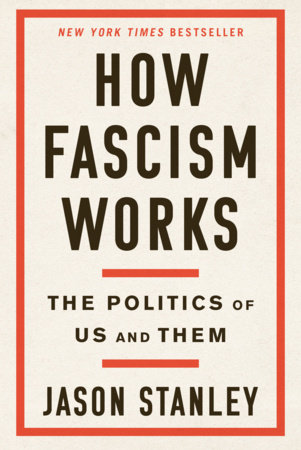What John Stuart Mill Got Wrong about Freedom of Speech
BY JASON STANLEY
"When conspiracy theories become the coin of politics citizens no longer have a common reality that can serve as background for democratic deliberation. In such a situation, citizens have no choice but to look for markers to follow other than truth or reliability; as we see across the world, they look to politics for tribal identifications, for addressing personal grievances, and for entertainment. When news becomes sports, the strongman achieves a certain measure of popularity. Fascist politics transforms the news from a conduit of information and reasoned debate into a spectacle with the strongman as the star. "

From HOW FASCISM WORKS by Jason Stanley. Copyright © 2018 by Jason Stanley. Published by Random House, an imprint and division of Penguin Random House LLC. All Rights Reserved.
What are the limits of freedom of speech? It is a pressing question at a moment when conspiracy theories help to fuel fascist politics around the world. Shouldn’t liberal democracy promote a full airing of all possibilities, even false and bizarre ones, because the truth will eventually prevail?
Perhaps philosophy’s most famous defense of the freedom of speech was articulated by John Stuart Mill, who defended the ideal in his 1859 work, On Liberty. In chapter 2, “Of the Liberty of Thought and Discussion,” Mill argues that silencing any opinion is wrong, even if the opinion is false, because knowledge arises only from the “collision [of truth] with error.” In other words, true belief becomes knowledge only by emerging victorious from the din of argument and discussion, which must occur either with actual opponents or through internal dialogue. Without this process, even true belief remains mere “prejudice.” We must allow all speech, even defense of false claims and conspiracy theories, because it is only then that we have a chance of achieving knowledge.
Rightly or wrongly, many associate Mill’s On Liberty with the motif of a “marketplace of ideas,” a realm that, if left to operate on its own, will drive out prejudice and falsehood and produce knowledge. But this notion, like that of a free market generally, is predicated on a utopian conception of consumers. In the case of the metaphor of the marketplace of ideas, the utopian assumption is that conversation works by exchange of reasons: one party offers its reasons, which are then countered by the reasons of an opponent, until the truth ultimately emerges.
But conversation is not just used to communicate information. It is also used to shut out perspectives, raise fears, and heighten prejudice. Remarking on the changes wrought by fascist politics on the German language, the philosopher Ernst Cassirer wrote in 1946:
If we study our modern political myths and the use that has been made of them we find in them, to our great surprise, not only a transvaluation of all our ethical values but also a transformation of human speech. . . . New words have been coined, and even the old ones are used in a new sense; they have undergone a deep change of meaning. This change of meaning depends upon the fact that these words which formerly were used in a descriptive, logical, or semantic sense are now used as magic words that are destined to produce certain effects and to stir up certain emotions. Our ordinary words are charged with meanings; but these new-fangled words are charged with feelings and violent passions.
The argument for the marketplace of ideas presupposes that words are used only in their “descriptive, logical, or semantic sense.” But in politics, and most vividly in fascist politics, language is not used simply, or even chiefly, to convey information but to elicit emotion.
The argument from the “marketplace of ideas” model for free speech thus works only if society’s underlying disposition is to accept the force of reason over the power of irrational resentments and prejudice. Language becomes a vehicle for emotion rather than meaning. If the society is divided, however, then a demagogic politician can exploit the division by using language to sow fear, accentuate prejudice, and call for revenge against members of hated groups. Attempting to counter such rhetoric with reason is akin to using a pamphlet against a pistol.
Mill seems to think that knowledge, and only knowledge, emerges from arguments between dedicated opponents. Mill would surely then be pleased with the Russian television network RT, whose motto is “Question More.” If Mill is correct, RT, which features voices from across the broadest possible political spectrum, from neo-Nazis to far leftists, should be the paradigm source of knowledge production. However, RT’s strategy was not devised to produce knowledge. It was rather devised as a propaganda technique, to undermine trust in basic democratic institutions. Objective truth is drowned out in the resulting cacophony of voices. The effect of RT, as well as the myriad conspiracy-theory-producing websites across the world, including in the United States, has been to destabilize the kind of shared reality that is in fact required for democratic contestation.
.....Read more: bostonreview.net
No hay comentarios:
Publicar un comentario